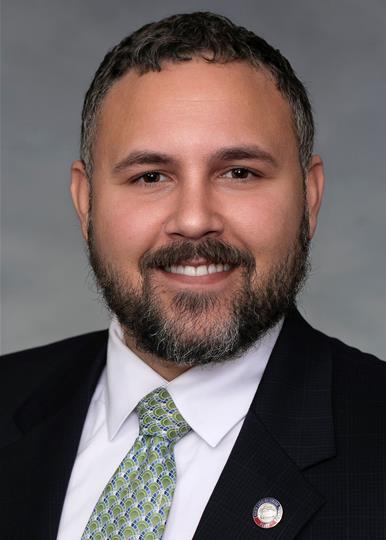AARP Eye Center
Bill introduced in North Carolina to help more workers save for retirement

RALEIGH -- Today, roughly half of North Carolina private-sector workers don’t have a way to save for retirement through their job. That’s roughly 1.8 million residents who are unprepared to support themselves in the future and more likely to have Social Security as their only source of retirement income. And those who work for our state’s small businesses are even less likely to have a savings plan. N.C. State Representatives Jarrod Lowery, Jeffrey McNeely, Jon Hardister, and Harry Warren introduced a new bill in March to help change this.
NC Work and Save (H 496) will create a new public-private retirement savings partnership—overseen by the state and run by a private-sector financial services provider—that would allow workers to save for retirement via payroll deduction so they can provide for themselves in the future, rather than facing dependency on public assistance.
AARP North Carolina Director Michael Olender explains, “For North Carolina workers, each passing day means less time to grow the savings they need to cover basic expenses and provide for their families in retirement. While Social Security is a critical piece of the puzzle, it alone is not enough to depend on for a secure financial future, rather than facing dependency onpublic assistance.
New reseach by the Pew Charitable Trust
In North Carolina, the average benefit for families is $1,545 a month—less than than the cost of necessities like food, utilities, and health care.

In championing the legislation, Representative Lowery said, “This proposal has the potential to change the lives of millions of North Carolinians and provide a better standard of living for them and their families so they are not relying solely on Social Security. In fact, one out of every two middle-class retirees will be unable to afford their basic needs in retirement."
With NC Work and Save (H 496) employers will have access to a low-cost, plug-and-play retirement savings option. Research shows that many small businesses want to offer retirement savings plans to help their employees save for the future, but don’t due to how expensive and time-consuming it can be. Other benefits include:
- Workers build their own retirement security: Through a direct payroll deduction, workers can contribute as much or as little as they want to their account and it can go from job to job with them.
- Supports businesses: Businesses get a no-cost way to offer an important employee benefit—that will also help them stay competitive in today’s tight job market.
- Self-sustaining: The partnerships are participant funded after initial start-up costs are paid back to the state. The funds cannot be comingled with public pension dollars, nor can they add to North Carolina’s public pension liability. There are no additional costs to the state and zero employer fees.
Olender added, “People will not be required to save – that’s a personal choice. But according to Pew Research, people are 15 times more likely to save if they can do so out of their regular paycheck, and 20 times more likely to do so if the deduction is automatic.”

Representative Jon Hardister added, “Without additional savings, many older North Carolinians will need to rely on public programs for those with limited incomes like Medicaid, and food assistance. This will have a heavy toll on taxpayers. But, if we act now and start helping workers grow the savings they need, according to research from UNCW’s Cameron School of Business, North Carolina could save $548 million on public assistance in the next ten years.”
If passed this year, North Carolina’s would join 14 other states with similar partnerships that are self-sustaining and participant funded. According to AARP, employee participants in other states save about $143 per month – showing that low-to-moderate income workers can save to be self-reliant in retirement.
“If we don’t act to now, the problem will just keep growing, and the cost of inaction will be felt by all North Carolinians. It’s time we tackle this head-on so that all workers have the chance to take control of their future. It’s a win for workers, a win for small businesses, and a win for the state," Olender explained.
WATCH:

























































